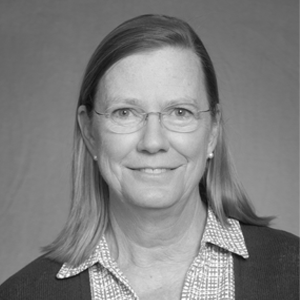The SQF clock is ticking. You’ve just assigned someone to the Practitioner role—maybe even yourself—and now you’re staring down a full-system audit in just 30 days.
That kind of pressure can derail even the most seasoned quality teams. When timelines collapse and leadership shifts mid-cycle, panic sets in fast. But here’s the truth: 30 days can be enough—if the person in the Practitioner role has the right tools, the right training, and a laser focus on what SQF auditors actually measure.
The mistake most facilities make isn’t lack of effort—it’s chasing readiness in the wrong direction. They focus on tenure instead of documentation, experience over evidence, and broad qualifications instead of the very specific expectations written directly into the SQF Code.
This article breaks down what auditors are really looking for, why your current timeline is more salvageable than it feels, and how Registrar Corp’s accelerated training makes even first-time Practitioners fully ready to lead.
What the SQF Code Requires—and What It Doesn’t
Let’s eliminate the guesswork.
SQF does not require the Practitioner to have five years of food safety experience. It does not require them to have led previous audits. And it certainly does not penalize you for assigning someone new to the role—so long as that person can prove:
- They understand HACCP and can articulate its application in your facility
- They know how your SQF System functions, evolves, and complies with Edition 9
- They’ve been trained—and can show documentation—that aligns with preventive control best practices
SQF audits are performance-based, not resume-based. That means they measure what your Practitioner can demonstrate in the room—not what’s written on a CV.
If your new Practitioner can confidently walk through the system, explain how hazards are managed, and present training records that align with HACCP and SQF implementation expectations, you are in bounds.
That’s why many facilities pass audits with newly appointed Practitioners who have only weeks of preparation—provided that preparation is purpose-built. If you’re unsure how to gauge auditor expectations, this breakdown of real audit standards shows what’s actually scrutinized—and what isn’t.
Why Most Facilities Panic—and Why They Don’t Need To
The real problem isn’t the 30-day deadline—it’s the myth that 30 days means automatic failure.
Facilities panic when they confuse experience with readiness. A veteran QA lead who hasn’t touched HACCP in three years or who isn’t fluent in the updated SQF Code can struggle just as much—if not more—than someone new but properly trained.
The two most destructive assumptions facilities make are:
- “It’s too late to get someone qualified.”
- “Appointing a new Practitioner will be flagged as non-compliant.”
In reality, neither are true. What matters is whether that individual is equipped to do the job at audit time—not how long they’ve held the title.
Structured training can close that gap quickly. When a new Practitioner is handed a roadmap that directly reflects SQF requirements and prepares them to speak with confidence about preventive controls, internal audits, verification procedures, and corrective actions, they can pass.
Thousands already have. Here’s how first-time Practitioners got audit-ready fast—and what they used to prove it.
How Registrar Corp Gets Practitioners Audit-Ready in 30 Days
Registrar Corp’s SQF Practitioner course was built for compressed timelines.
It’s not a rehash of generic food safety material. It’s a compliance accelerator. Designed by regulatory experts and mapped directly to Edition 9, the course trains your new Practitioner not just to understand the SQF System—but to represent it under scrutiny.
Here’s what it covers—and why it matters:
- HACCP Certification (CODEX-based): Required by the SQF Code. This ensures your Practitioner has validated knowledge of hazard analysis and control strategies.
- SQF System Training: Specific modules walk through Edition 9 expectations, including system maintenance, document control, verification, and root cause analysis.
- Documentation Templates and SOPs: Includes tools Practitioners can immediately apply to show oversight, improvement, and preventive control alignment.
- Pre-Audit Prep Frameworks: Learners leave with checklists, audit walkthroughs, and examples of how to field auditor questions with clarity and confidence.
It’s used by:
- Facilities preparing for initial certification
- Facilities replacing a departing QA lead right before an audit
- Facilities facing recertification with new team members and no room for error
This course was built for the exact scenario you’re facing—compressed timelines, new roles, and real regulatory pressure.
Still weighing your options? Compare how this training stacks up against what auditors actually recognize.
Final Word: You’re Not Too Late—But You Do Need to Start Now
SQF isn’t about perfection. It’s about proof.
If your new Practitioner can walk into that audit room with documented training, system fluency, and a clear understanding of HACCP and risk control, you can pass—even under pressure.
Registrar Corp’s course has helped thousands of food facilities do exactly that. It’s structured for speed, designed for impact, and backed by one of the most trusted names in regulatory compliance.
You have 30 days. Let’s make them count—get audit-ready now.








